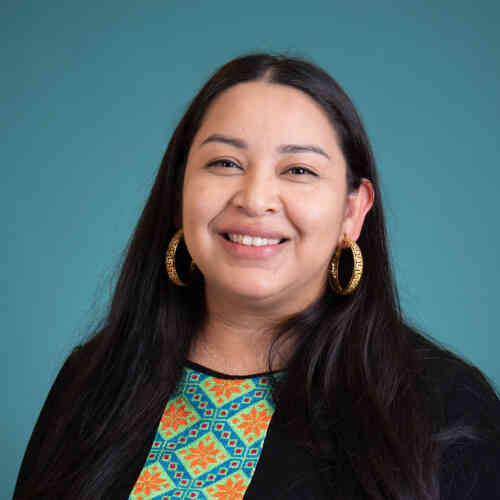When I first stepped into the role of Community School Coordinator, I was fresh out of college and full of ideas. After working in community schools for two years, I had just transitioned into a new position in my hometown of East Los Angeles. I wanted to prove myself–and more importantly, I wanted to serve the families and caretakers in my community.
One of my very first projects was to organize a parent workshop called, “How to Get Your Child to College.” I did everything I thought I was supposed to do–sent text messages, made robo-calls, waited for parents after school to invite them personally. I felt prepared and excited.
Workshop day came. And guess what? Nobody showed up.
That evening, frustrated and exhausted, I vented to my mom while she was cooking dinner. She listened for a minute before interrupting me with a question that stopped me in my tracks:
“What was the workshop about?”
When I told her, she turned from the stove and said, “You think it’s so easy to let your kids go off to college? I left my home country 20 years ago, and I haven’t seen my parents since. Now you’re telling me I should let my daughter leave too?”
Her words cut deep. It wasn’t something I had considered. I was so focused on helping students succeed that I hadn’t stopped to ask: what does this mean for their families? For parents and caretakers who sacrificed so much, the idea of sending their children away can be complicated, painful, and deeply emotional.
The next day, I asked one of the parents who had helped me plan the event why no one had come. She told me, bluntly, “the school’s biggest problem is that it never wants to build community. It’s all about business.”
That was my first and biggest lesson: I had misunderstood my role. My job wasn’t just to organize programs, but to listen. To recognize that those closest to the challenge often hold the most powerful solutions. Families weren’t just “recipients” of services; they were partners, co-leaders, and experts in their own right.
And that’s the beauty of the community schools approach. It teaches us that every voice matters, and that authentic transformation comes when students, families, educators, and community members each contribute their perspectives and strengths. As a coordinator, my role wasn’t to deliver answers, but to create space for us to build them together.
Looking back, that empty workshop was the most important training I ever received–not from a manual, but from my community itself.
So before we rush to plan the next workshop, event, or initiative, we have to pause and ask: have we built (or started to build) trust and relationships with the families in our community? What are our families’ current experiences with our school, teams and staff? Have we connected with those families about their goals, interests and ideas? And finally, who do we need to work with to plan out family events and experiences?
I know that not one of those questions have easy answers. It’s hard work engaging families, not to mention making your community school vision a reality. If you’d like some extra support, I encourage you to join me at the Community School Implementation Series. It’s a chance to build your capacities to grow and support teams, engage interest holders in different aspects of community school work, and put community school theory into practical action. Across three workshops, you’ll get a grounding in the community school strategy, get practical tools to apply your learning right away, and celebrate your growth with your peers.
We’re kicking off in about a month, and registration is now open. Hope to see you there!

Cristina Patricio is a Community Schools Coach working out of the traditional lands of the Tongva, Chumash, and Tataviam Indigenous People in East Los Angeles and across L.A. County. She began her Community Schools journey 16 years ago, collaborating with school leaders and communities in South Los Angeles, Inglewood, the San Fernando Valley, and her hometown of East L.A. Today, she partners with district leaders across California and in Las Cruces, New Mexico. Cristina specializes in Community Schools implementation and development that elevates all educational partners while honoring lived experiences and culturally relevant approaches. She obtained her B.A. in Chicana/o Studies and History (2010) and her M.A. in Chicana/o Studies (2018) from California State University, Northridge, where she also serves as a part-time lecturer in the Chicana/o Studies Department.